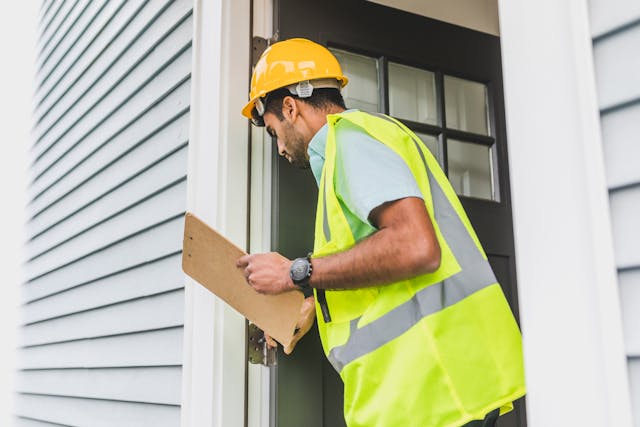When it comes to property management, maintaining the value of assets is a top priority. One of the most overlooked yet critical aspects of this process is the maintenance of asphalt surfaces. Whether it’s parking lots, driveways, or walkways, well-maintained asphalt not only enhances the aesthetic appeal of a property but also ensures safety and long-term durability. Neglecting asphalt maintenance can lead to costly repairs, diminished property value, and dissatisfied tenants. This article delves into the vital role that asphalt maintenance plays in retaining property value and why it should be a key focus for property managers.
Asphalt and Curb Appeal: First Impressions Matter
The condition of asphalt surfaces directly impacts a property’s curb appeal, which is a crucial factor in attracting tenants, buyers, or investors. When potential tenants or visitors arrive, the first thing they often notice is the parking lot or driveway. Cracks, potholes, or faded striping can create an impression of neglect, potentially deterring high-quality tenants or clients. On the other hand, smooth, clean, and well-maintained asphalt projects a sense of professionalism and care. A polished exterior sets the tone for the property, giving the impression that the management team is attentive to detail and committed to quality. This perception can significantly influence rental or leasing decisions, making asphalt maintenance an essential component of property management strategies.
Safety and Liability: Protecting Tenants and Visitors
Beyond aesthetics, maintaining asphalt surfaces is critical for ensuring safety. Damaged asphalt, such as potholes and cracks, poses a risk to pedestrians and vehicles. Trip-and-fall accidents are not only hazardous for tenants and visitors but can also expose property owners to legal liability. A property with unsafe surfaces may face lawsuits, increased insurance premiums, and a tarnished reputation. Regular maintenance, including timely crack filling and pothole repairs, mitigates these risks by creating a safer environment for everyone. Property managers who prioritize safety demonstrate a commitment to their tenants’ well-being, which fosters trust and long-term tenant retention.

The Role of Proactive Maintenance in Cost Management
Proactive maintenance is far more cost-effective than addressing problems reactively. Asphalt is subject to wear and tear from daily use, exposure to weather, and the natural aging process. Without regular upkeep, minor issues can quickly escalate into major problems. For example, a small crack can widen over time, allowing water to seep in and weaken the underlying foundation. This leads to larger cracks, potholes, and potentially expensive reconstruction work. By investing in preventive measures such as sealcoating, property managers can extend the lifespan of their asphalt surfaces. Sealcoating acts as a protective barrier against water, UV rays, and chemical spills, reducing the likelihood of damage and minimizing long-term repair costs. Additionally, regular inspections help identify issues early, ensuring that repairs remain manageable and affordable.
Environmental and Regulatory Considerations
In today’s environmentally conscious climate, property managers must also consider the environmental impact of their maintenance practices. Neglected asphalt surfaces often require more extensive repairs, which can involve significant material use and energy consumption. By maintaining asphalt proactively, property managers can reduce waste and contribute to sustainability. Moreover, many municipalities and regulatory bodies have standards for pavement condition, especially in commercial or multifamily properties. Failing to meet these standards can result in fines or penalties. Staying on top of asphalt maintenance ensures compliance with local regulations and enhances the property’s reputation as a responsible community member.
Long-Term Financial Benefits of Asphalt Maintenance
From a financial perspective, maintaining asphalt surfaces is an investment rather than an expense. Well-maintained parking lots and driveways can significantly boost a property’s market value. Prospective buyers or investors view properties with properly maintained infrastructure as lower-risk investments, increasing their willingness to pay a premium. Additionally, tenants are more likely to renew leases in properties that are visually appealing, safe, and well-maintained, reducing turnover and vacancy rates. For commercial properties, a smooth and visually appealing parking lot can even attract more customers to businesses, indirectly benefiting property managers through tenant satisfaction and retention. Over time, the cumulative benefits of these factors far outweigh the costs of regular maintenance.
Key Asphalt Maintenance Practices for Property Managers
To maximize the value of asphalt surfaces, property managers should implement a comprehensive maintenance plan. This begins with regular inspections to identify cracks, potholes, and other issues before they worsen. Crack filling is a straightforward process that prevents water infiltration, while pothole repairs restore the integrity of the surface. Sealcoating, applied every few years, protects asphalt from environmental damage and maintains its smooth, black finish. Line striping is another critical aspect, ensuring that parking spaces, walkways, and loading zones are clearly marked and compliant with safety regulations. It’s also essential to address drainage issues, as standing water can accelerate asphalt deterioration. By combining these practices, property managers can keep asphalt surfaces in optimal condition and preserve their value for years to come.

Collaborating with Professional Asphalt Contractors
While some maintenance tasks can be handled internally, partnering with professional asphalt contractors ensures the highest quality results. Experienced contractors have the expertise and equipment to perform repairs and maintenance efficiently and effectively. They can also provide valuable advice on the most appropriate maintenance schedule based on the property’s unique needs and usage patterns. Working with professionals not only saves time but also reduces the likelihood of errors that could lead to further damage. Property managers should seek contractors with a proven track record, proper licensing, and positive customer reviews to ensure a reliable partnership.
Prioritizing Asphalt Maintenance for Long-Term Success
For property managers aiming to retain and enhance property value, asphalt maintenance should be a top priority. The condition of parking lots, driveways, and walkways plays a significant role in shaping perceptions of the property, ensuring safety, and managing costs. Proactive maintenance prevents small issues from escalating, reduces liability risks, and contributes to environmental sustainability. Moreover, it delivers long-term financial benefits by boosting property value, tenant satisfaction, and compliance with regulations. By implementing a comprehensive maintenance plan and collaborating with professional contractors, property managers can ensure that their asphalt surfaces remain an asset rather than a liability. In the competitive world of property management, attention to asphalt maintenance is a simple yet powerful way to stand out and secure lasting success.
